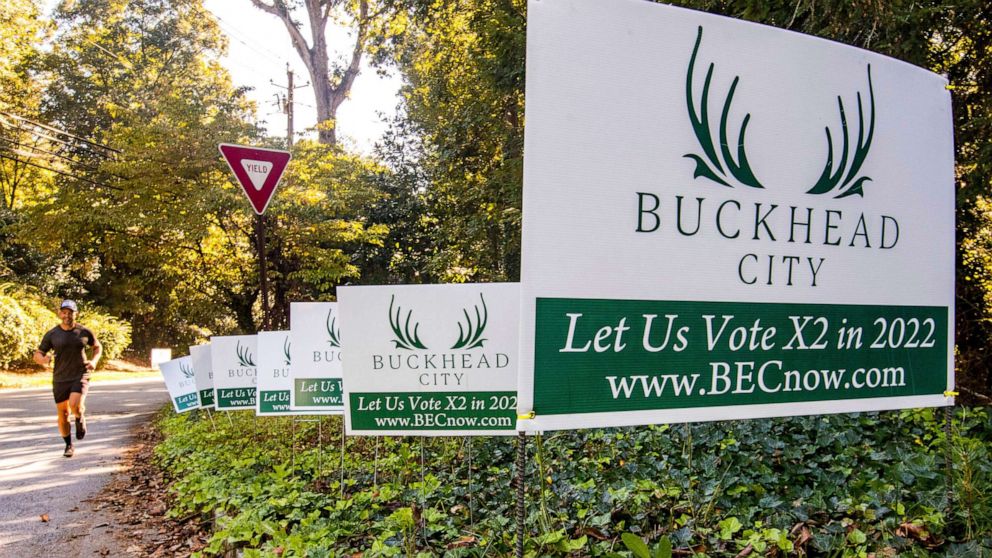Crime concerns behind neighborhood's idea to secede from Atlanta
Some residents in Atlanta's wealthiest neighborhood say they want to leave the city and start a new one, saying they are concerned with crime. But the idea comes with an increasing number of economic and social concerns as it gains steam.
Buckhead is located on the north end of town and accounts for about 20% of Atlanta's half a million residents. The neighborhood is known for having the city's most expensive hotels, restaurants and shopping malls. It is also home to CEOs, movie stars and their mansions.
Concerns that crime is going unchecked have inspired a group of neighbors to form the Buckhead City Committee. They want the community to vote this November on removing themselves from the city of Atlanta, and starting their own city, with their own police force.
However, Atlanta police officials have pushed back against this, saying not only that violent crime is markedly higher in other neighborhoods but that they are working hard to address concerns in the Buckhead community, including opening a new police station. In fact, overall crime is down in the area, police say.
Bill White is leading the charge to separate the community. He's the chief executive officer of the Buckhead City Committee and has helped raise over $2 million in donations from as far away as Bangladesh and Australia. He's a wealthy political fundraiser who only moved to the neighborhood about three years ago, and says one day thieves showed up to his home.
"We had somebody come up our driveway -- a pair of criminals who had just harassed a 10-year-old girl," he said.
White's critics say his intentions are political, that this is part of a far-right conservative effort to weaken cities run by Democrats. He denies this is the reason.
White said he believes the Atlanta Police Department doesn't have the resources or the community support to effectively protect residents in his neighborhood. By creating their own city, White said Buckhead's taxes will be better spent on public safety.
He said a rash of high-profile crimes in Buckhead has sounded alarms. In December, a man was shot at a high-end movie theater in Buckhead. In November, and again in June, people jogging on Buckhead sidewalks were shot in random attacks. At Buckhead's Lenox Mall, there were several shootings at the property in 2021, and at least two of those people were killed.
"People say enough is enough, and I think this has been brewing for some time," White said.
"If you look at the policies of the city of Atlanta, this is a criminal's paradise. There is no adjudication of justice here," White said. "If you let the criminals know that they can carjack you and they won't be chased, they can shoplift you and they won't be prosecuted, people feel like they're living in a war zone."
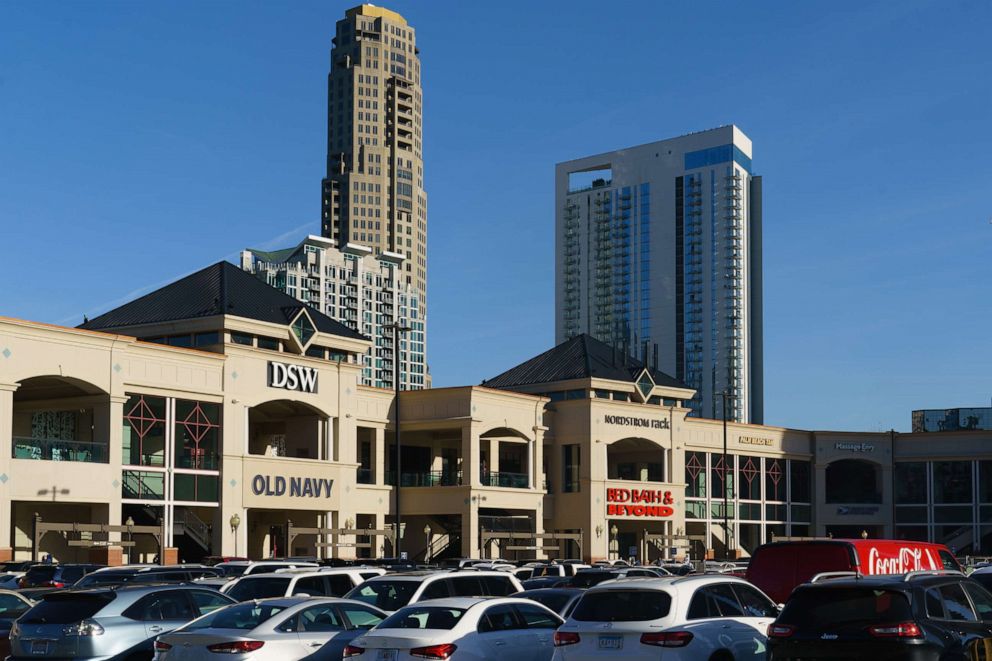
Police say it's true that they're not sending police officers to most shoplifting calls, saying that by the time those officers arrive, the thieves are gone, and that their time could be better used. But Atlanta police said their current policies do allow for high-speed chases. Some of their policies changed after lawsuits were filed by innocent drivers who were hurt in car wrecks caused by these chases. Even so, Atlanta police will still chase a driver wanted for murder, for example.
If the effort is successful, White said that a new Buckhead City would form its own police department with more than 250 officers.
Eliana Kovitch, a health care worker and Buckhead resident, said she is in favor of separation if it means more police on the streets.
"I've lived in Buckhead [for a] long time, and for the past year and a half, I've been terrified everywhere I go," she said.
Kovitch said she started feeling unsafe after an incident in June 2020, when she was attacked by a man with a knife while waiting for a Lyft ride with her boyfriend. The suspect, according to the police, was a repeat offender who was arrested days earlier in a different county.
"I don't side with ... the politics of any of it. I wanna be a voice ... for victims," Kovitch said. "Yes, there are more severe crimes, if you wanna put it that way. But everyone has their own experience and ... is affected in their own way."
Across Atlanta's Police Zone 2, which covers Buckhead, West Midtown, Lenox Park and Piedmont Heights, murders were up 63%, from eight cases to 13 between 2020 and 2021.
While murder rates were up, the city reports that overall crime in this same area (including robberies, burglaries and car break-ins) actually decreased by 6% last year, compared to 2020, according to the Atlanta Police Department.
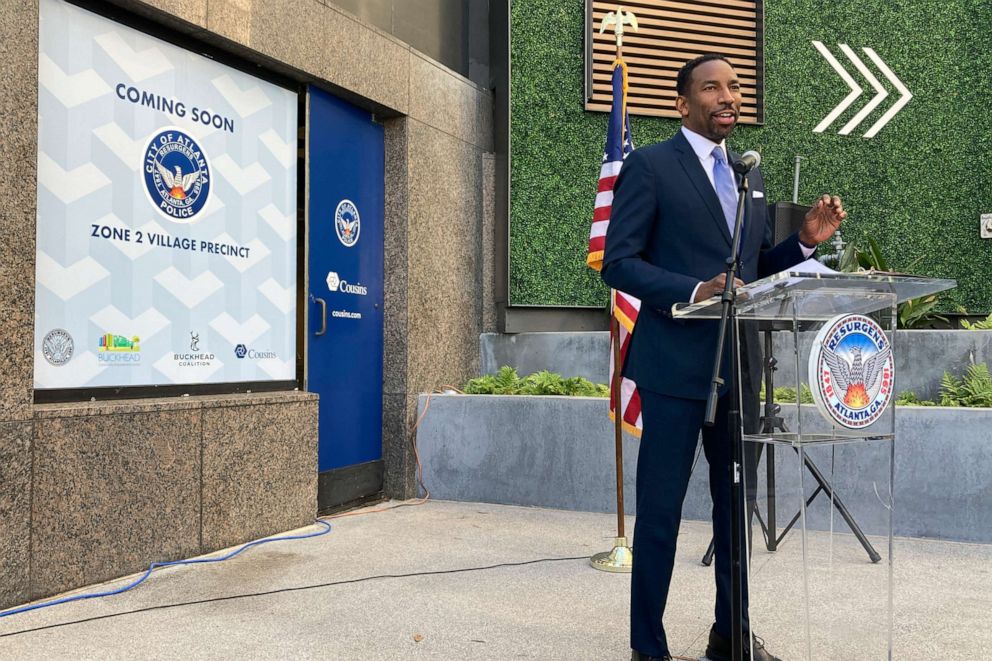
Atlanta Police Chief Rodney Bryant said that even Buckhead's total number of violent crimes are still a fraction of the violent crimes seen in other neighborhoods. Most other Atlanta neighborhoods had at least 30 murders in 2021, compared to 13 for Buckhead, the fewest in the city.
Bryant said he still doesn't want to minimize the crime residents are seeing.
"One of the hard things that I have to do is address the perception and what people feel as it relates to crime," said Bryant. "We recognize that we have to do a better job of that as well. And so that's something that we will be working with at the mayor's office -- what is it that we can do to really show people the truth? And make them feel what we are seeing in the numbers."
On the southwest end of the city, Glenda Mack lives in Atlanta's Zone 4, where 32 people were murdered last year. Her 12-year-old grandson was one of them.
She doesn't agree with all the focus on Buckhead.
"To me, it's just a bunch of entitled people that think they can do that because they're entitled," she said.
"I don't understand. They want to leave the city of Atlanta and be their own. Well, you know. I realize the city of Atlanta depends on y'all money. They depend on that too. I pay taxes, too," Mack said.
David Mack was killed near her home, not far from a police precinct. His family found his body the next morning, and the autopsy later revealed he was shot nine times. Police still haven't made an arrest in the case.
When it comes to crime, Mack believes the focus should be citywide.
"You can't just focus on one place, and that's what I want everyone to know," she said.
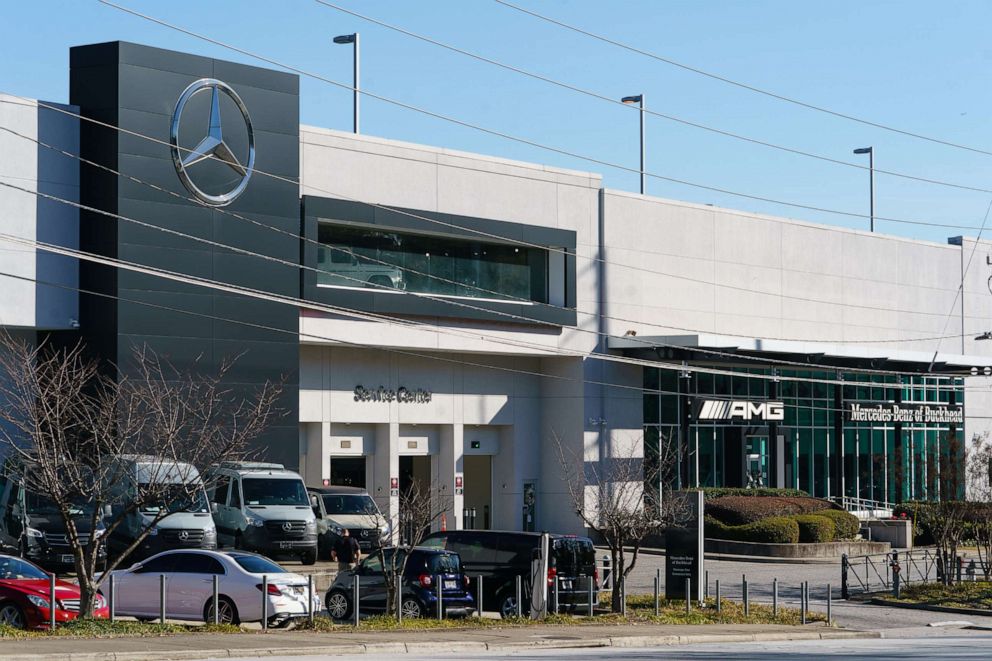
If Buckhead leaves Atlanta, it would underline a racial divide.
The vast majority of Buckhead's residents -- 77.5% of its total population -- are white, while 11% are Black and 6% are Asian. Regardless of race, 7% of the neighborhood's population is Hispanic.
In contrast, Atlanta is nearly 50% African American.
If Buckhead leaves, the neighborhood will also take with it a great deal of tax dollars.
While residents in the neighborhood make up about 20% of the city's population, their tax bills (through property and commercial taxes) cover about 40% of the city's expenses.
Atlanta Mayor Andre Dickens said it would leave a significant hole in the city's tax base if Buckhead goes it alone.
"This divorce of Buckhead from Atlanta would be an unnecessarily expensive one for both spouses in this divorce," Dickens said. "We have a lot of parks and things that ... it's going to cost them. It's going to be alimony if this happens."
Dickens took office this month, and has been working with business leaders and other local influencers to keep his city together.
This month, he opened a new police precinct in the heart of Buckhead. He's also working to establish a better relationship between Atlanta City Hall and the Georgia Statehouse, where the decision to allow residents to vote will be made.
"In Atlanta, across Georgia and across the nation, if the wealthier parts of a community decide they want to form another city, they will continue to make lines and draw division between those that are affluent and those who aren't," Dickens said. "What does that say about our society?"
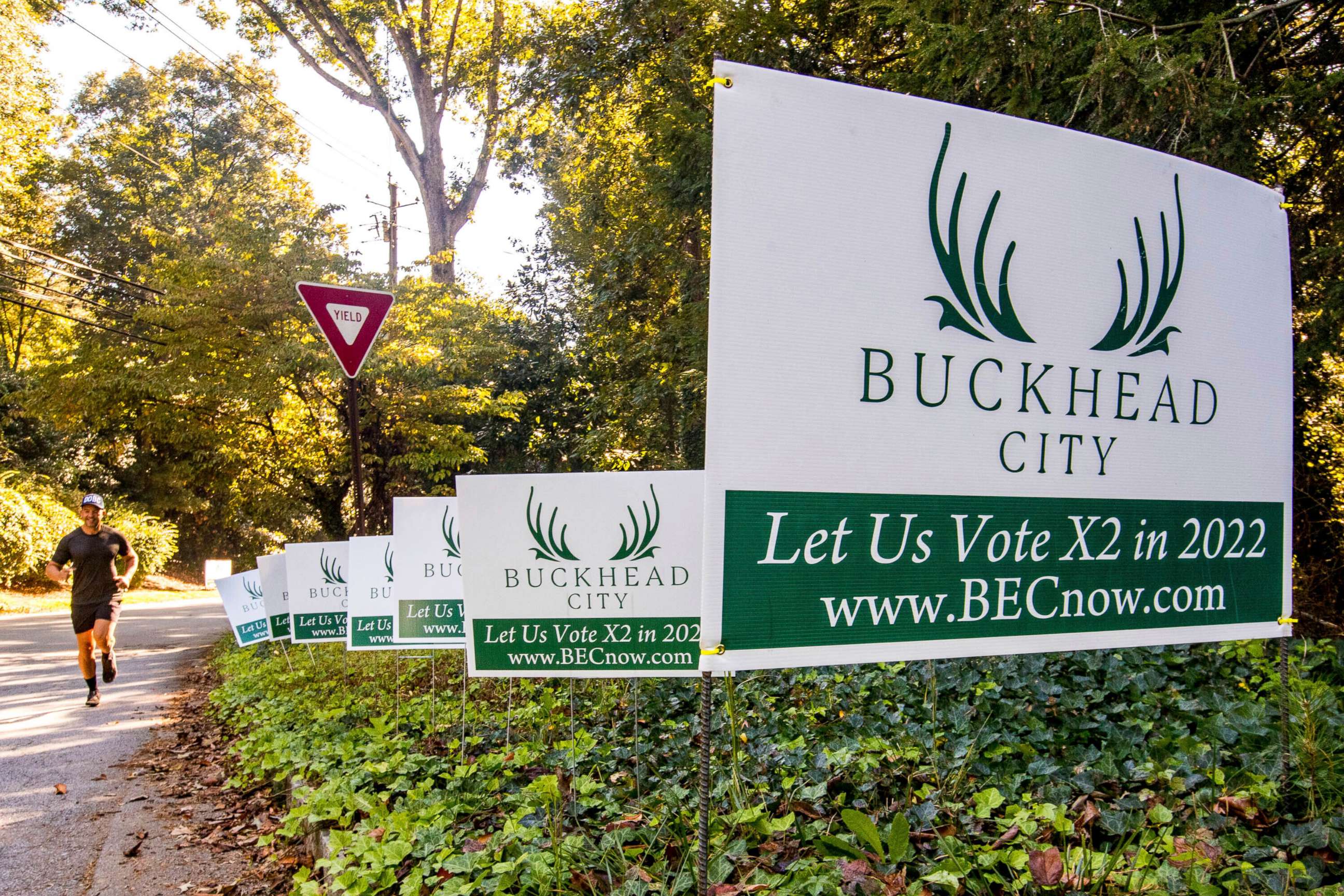
The issue now awaits the vote of two bills, one introduced by state Rep. Todd Jones in the Georgia House of Representatives as well as another sponsored by state Sen. Brandon Beach in the Georgia Senate. Both bills will be voted on during the 2022 legislative session in April.
Georgia Lt. Gov. Geoff Duncan also believes Buckhead's move to leave the city would hurt the region.
"I think businesses would look negatively upon the separation of those two areas and I think actually it will make the crime issue worse," he said.
His opinion matters more than many, because as lieutenant governor, he's able to slow down or speed up legislation in the state Senate. Duncan has assigned the legislation to a committee of Democrats, which is likely to sit on the bill.
And in the Georgia House, Republican House Speaker David Ralston has signaled that he's not sure Buckhead leaving is in the best interests of the state.
If lawmakers do say yes to a vote, only residents who live in the boundaries of the new city would get to decide. The vote would take place in November.
Atlanta's mayor said he's working overtime to convince Buckhead residents to work with him on the issues.
"When individuals choose to divide and choose separation as that answer, they're not going to get the result that they were seeking. They're not going to have a better community. They are not going to have a safer community," Dickens said.
"When we come out of this pandemic, and as we're in it, we have to lock arms and work together to solve these issues," he added. "Separation has rarely been the answer for community-based issues. We do things together in Atlanta and across America, and the benefits would be seen broadly."
Editor's note: The headline has been clarified to more accurately reflect the data in the story.
